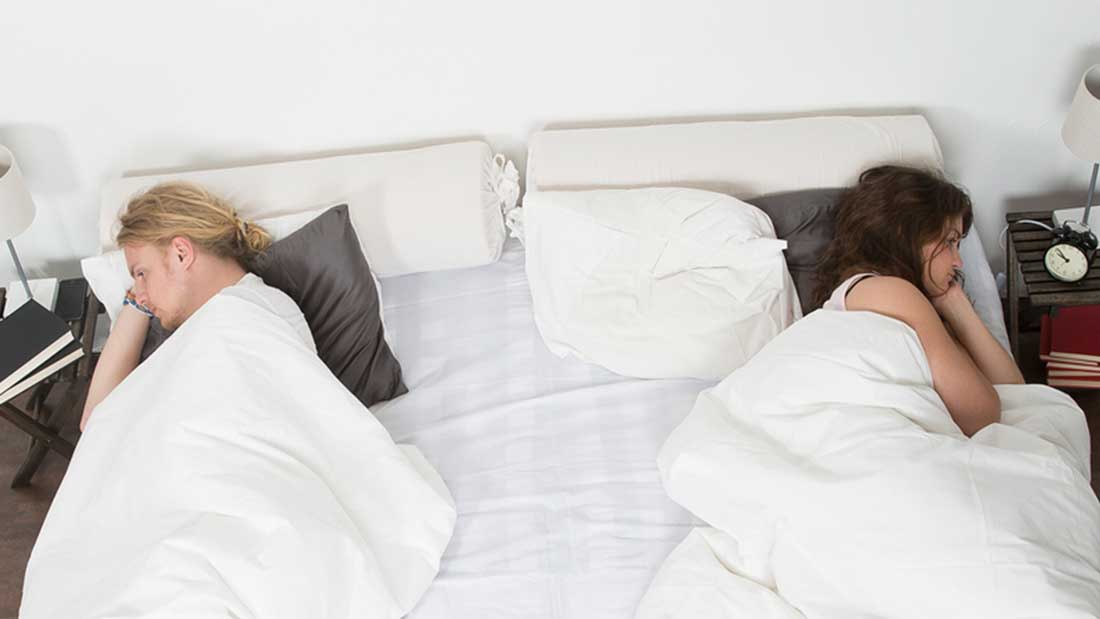
It likely comes as no surprise that feeling tired and rundown impacts productivity at work. But a recent study published in the Medical Journal of Australia revealed the impact may be more extreme than previously thought. The study showed up to 40 percent greater loss in productivity in the workplace among adults in their 20s who have sleep disorders compared with those with no sleep disorders.
The researchers explain that a productivity gap of this magnitude is like missing four weeks of work every year. For young people trying to climb the ladder, prove their merit, and advance their standing (and income) in the early years of their careers, this loss may set them back significantly.
Although the results of this study are alarming, it’s worth noting the sample size was only 554 participants, all of whom were 22 years old and living in Australia. To find out how applicable these findings are for the general population of young adults and what can be done to help solve productivity issues from poor sleep, we spoke to psychologist Dr. LeMeita Smith, Ph.D., LPC, NCC, and certified psychology expert and life coach Bayu Prihandito, Founder of Life Architekture.
“Insomnia, without a doubt, can be highly detrimental to productivity in the workplace,” says Smith. Beyond the apparent consequences of sleep deprivation, such as fatigue and difficulty concentrating, deeper underlying mechanisms are at play. “When individuals struggle with insomnia, their cognitive functions, including memory, attention, and decision-making, can be significantly compromised,” explains Smith. “This can hinder their ability to process information efficiently, problem-solve, and effectively complete tasks, resulting in reduced productivity.”
Furthermore, Smith stresses that sleep is essential for emotional regulation and mental health. “Insomnia can exacerbate stress, anxiety, and depressive symptoms, which further impairs one’s ability to cope with work demands,” she says. The emotional toll of insomnia and physical fatigue creates a perfect storm for decreased productivity and job satisfaction.
In fact, mental health is a massive issue for workplace productivity on its own, causing financial losses and struggles for employers and employees. Sleep quality is a critical factor in preventing and improving mental health issues, with studies showing those who lack quality sleep have worse outcomes for depression, anxiety, stress, and more. And it’s a two-way street—mental health challenges can cause poor sleep, leading to a vicious cycle.
For young people, Prihandito points out that transitioning to adulthood brings many responsibilities and stressors, from academic pressures to the challenges of starting your career. He says that the always-online culture has not helped, he says, which has created a state of constant hyper-connectivity that can easily disrupt natural sleep patterns.
Smith says young adults may also be more likely to have poor sleep habits such as irregular bedtimes, caffeine and alcohol consumption, engaging in stimulating activities before bed and using the bed for work or eating. “These habits disrupt the body’s internal sleep-wake cycle, known as circadian rhythms, leading to decreased sleep quality and quantity,” she says.
According to Smith, avoiding these habits and establishing a consistent sleep routine by going to bed and waking up at the same time every day, even on weekends, can help regulate the body’s internal clock. “Creating a sleep-friendly environment, free from distractions and promoting relaxation, is crucial,” she says.
“It’s also crucial to manage your stress levels, as stress and sleep don’t mix well,” advises Prihandito, who recommends combatting stress with mindfulness. Practicing relaxation techniques such as deep breathing exercises, meditation, or engaging in a wind-down routine before bedtime (that includes shutting off screens) can also aid in falling asleep.
Since a loss of productivity significantly affects an employer’s bottom line, workplaces can and should be part of the solution and develop practices that support individuals with insomnia.
Smith and Prihandito say workplaces should foster a culture that prioritizes work-life balance and acknowledges the importance of sleep health. They can do this by:
- Encouraging employees to take breaks
- Providing flexible scheduling options
- Offering resources for stress management
- Promoting education about sleep hygiene and the potential consequences of insomnia
- Raising awareness and reducing stigma around sleep disorders
Speak to the human resources department if your workplace does not support mental health or balance. You never have to reveal your concerns or issues with your supervisor or colleagues. If you are struggling with mental health or sleep concerns, seek guidance from your healthcare provider.

10 Celebrity Sleep Tips and Tricks For a Better, More Restorative Night’s Sleep

All About Anxiety: Why Is It Preventing You From Sleeping?

“Sleepy Sorbet” Is Everywhere, But Does It Work? I Tried It Out Myself

“Hot Bedding,” Where Strangers Share a Bed, Is On the Rise
Sources
Reynolds, A.C., Coenen, P., Lechat, B., Straker, L., Zabatiero, J., Maddison, K.J., Adams, R.J. and Eastwood, P. (2023), Insomnia and workplace productivity loss among young working adults: a prospective observational study of clinical sleep disorders in a community cohort. Med J Aust. https://doi.org/10.5694/mja2.52014
Smith, Dr. LeMeita. Author interview. July 2024.
Prihandito, Bayu. Author interview. July 2024.
Alexander J. Scott, Thomas L. Webb, Marrissa Martyn-St James, Georgina Rowse, Scott Weich, “Improving sleep quality leads to better mental health: A meta-analysis of randomised controlled trials,” Sleep Medicine Reviews, Volume 60, 2021, 101556, ISSN 1087-0792, https://doi.org/10.1016/j.smrv.2021.101556.
